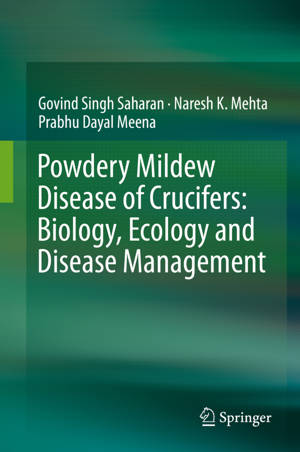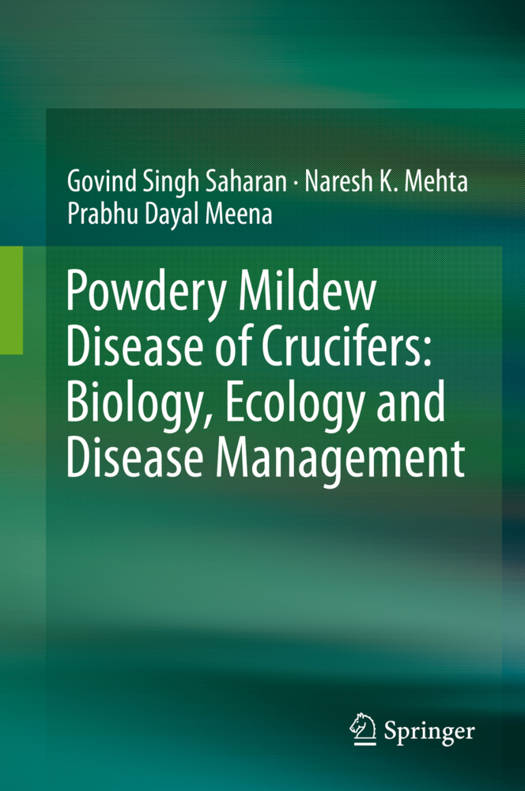
- Afhalen na 1 uur in een winkel met voorraad
- Gratis thuislevering in België vanaf € 30
- Ruim aanbod met 7 miljoen producten
- Afhalen na 1 uur in een winkel met voorraad
- Gratis thuislevering in België vanaf € 30
- Ruim aanbod met 7 miljoen producten
Powdery Mildew Disease of Crucifers: Biology, Ecology and Disease Management
Govind Singh Saharan, Naresh K Mehta, Prabhu Dayal MeenaOmschrijving
Powdery mildew disease is the fourth most widespread disease in cruciferous crops and a devastating effect, causing significant losses in terms of quality and quantity in rapeseed and mustard. Powdery mildews are also a favourable host-pathosystem model for basic research on host-parasite interactions, developmental morphology, cytology, and molecular biology to identify the effector proteins/genes governing different biological functions.
This book provides a comprehensive overview of all the published information in the field for researchers, teachers, students, extension experts, industrialists and farmers, and includes illustrations, photographs, graphs, figures, tables, histograms, micrographs, electron micrographs, and flow charts to aid understanding. It also describes standardized reducible techniques. The book discusses each disease in detail, describing the distribution, symptomatology, host range, yield losses and disease assessment, as well as the taxonomy, morphology, phylogeny, variability, sporulation, survival and perpetuation of the pathogen. Further, it explores topics such as spore germination; infection; pathogenesis; disease cycle; epidemiology; forecasting; fine structures; host resistance; biochemical, histological, genetic and molecular aspects such as cloning and mapping of R genes; sources of resistance; disease resistance breeding; and the genetics of host-parasite interactions and disease management.
Specificaties
Betrokkenen
- Auteur(s):
- Uitgeverij:
Inhoud
- Aantal bladzijden:
- 362
- Taal:
- Engels
Eigenschappen
- Productcode (EAN):
- 9789811398520
- Verschijningsdatum:
- 6/12/2019
- Uitvoering:
- Hardcover
- Formaat:
- Genaaid
- Afmetingen:
- 155 mm x 235 mm
- Gewicht:
- 989 g

Alleen bij Standaard Boekhandel
Beoordelingen
We publiceren alleen reviews die voldoen aan de voorwaarden voor reviews. Bekijk onze voorwaarden voor reviews.











